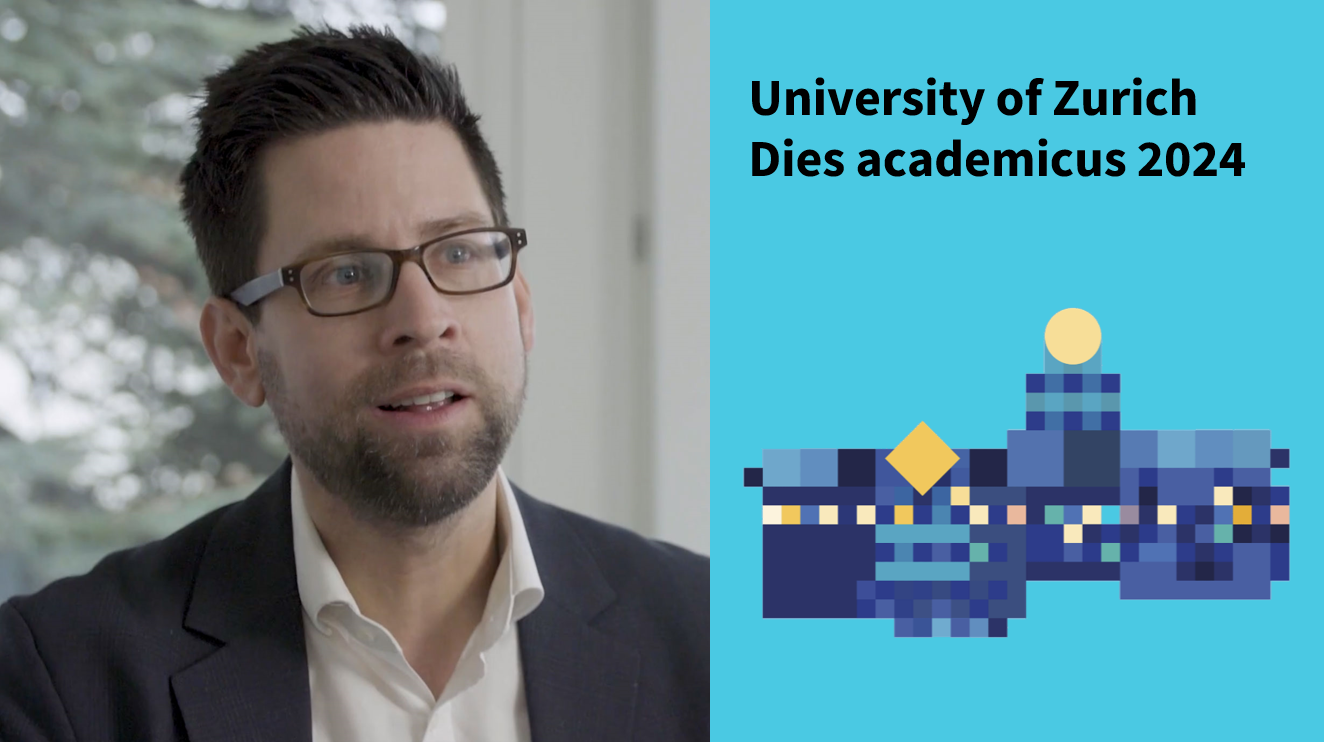Zacharias Sautner featured in "Dies academicus 2024"
Watch the highlight video and read the interview on how sustainable finance impacts the financial system.

On Saturday, 27 April 2024, the University of Zurich (UZH) celebrated its 191st birthday.
The Dies academicus ceremony took place on the Irchel Campus in Zurich, Switzerland.
In addition to honorary doctorates, award ceremonies, various speeches, and a panel discussion, selected research highlights were presented to showcase the diverse research conducted at the University of Zurich. The research highlight video also featured Zacharias Sautner, Professor of Sustainable Finance at the Department of Finance, discussing the topic of sustainability in the financial system.
Professor Sautner, you attended the Dies academicus 2024. What impressions did you take away from this festive event?
The Dies academicus clearly demonstrated the importance of the University of Zurich as a center for critical societal discourse. There is no better place for engaging in controversial discussions than a university.
Why were you selected as a "highlight"?
On one hand, my selection as a highlight reflects the significance of Sustainable Finance for the future of the Swiss financial sector. On the other hand, it also underscores the role Switzerland can play in fostering a more sustainable global development and how the power of capital can be harnessed for this purpose. In any case, I interpret my selection as an indication that University of Zurich is committed to making significant contributions to both topics.
How do the University of Zurich and the Department of Finance collaborate on the topic of sustainability?
Our research at the Department of Finance on Sustainable Finance intersects with many other areas where University of Zurich conducts cutting-edge research. One example is biodiversity research, which is becoming increasingly relevant to financial markets. This includes developing and applying metrics to measure biodiversity risks at the corporate level. A comprehensive university can provide the critical mass of basic and applied research, as well as the interdisciplinary approach necessary to address complex societal challenges.